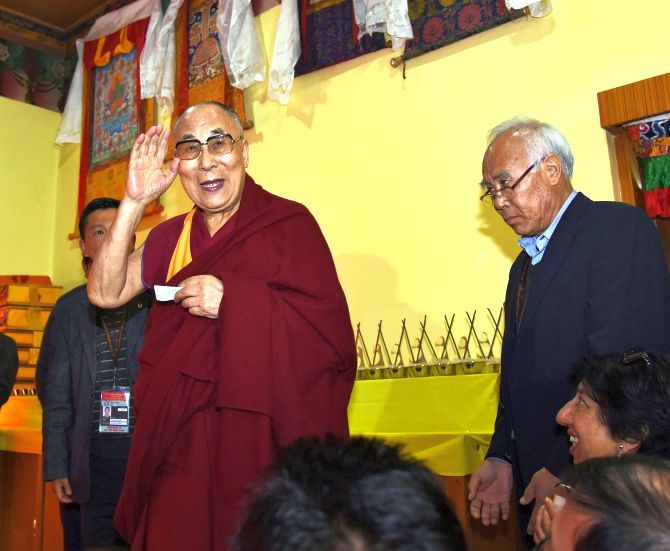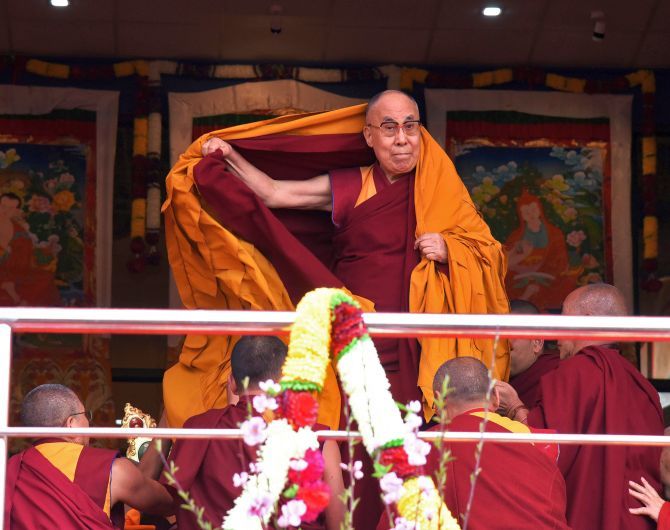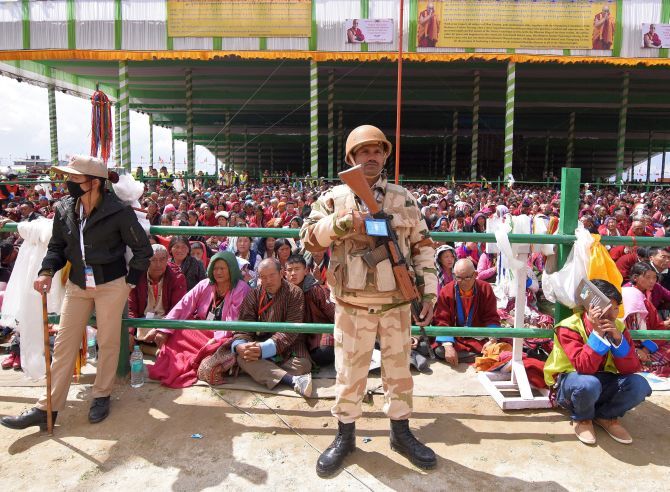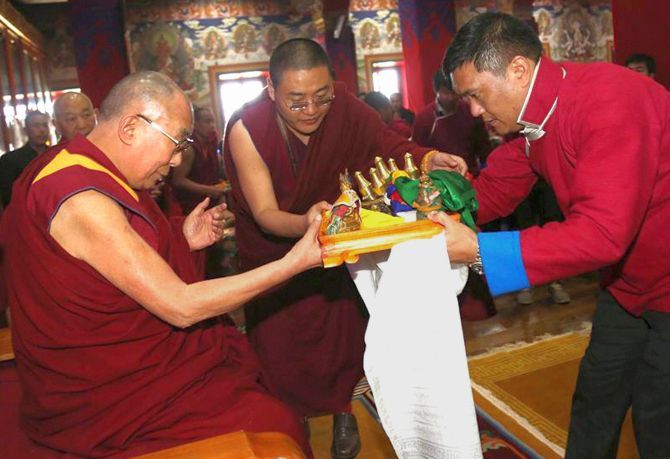 | « Back to article | Print this article |
The Tibetan spiritual leader Dalai Lama on Saturday criticised China for making a bid to name his successor.

“Beijing’s bid to name my successor to undermine the Tibetans’ cause is nonsense,” he said while talking to reporters in Tawang, Arunachal Pradesh.
The spiritual leader on Saturday addressed devotees speaking to them about the pratices of Boddhisattavas at the Yid GaChosin monastery in Tawang, Arunachal Pradesh.
A large number of devotees gathered at the monastery were from Bhutan, besides eminent Rimpoches, monks and nuns from near and far off places and guests.
Welcoming the Dalai Lama to West Kameng district, Chief Minister Pema Khandu, who hails from it, called him the world’s “apostle of peace”.

China had years ago confined the Dalai Lama-nominated Panchen Lama and projected its own Panchen Lama, a monk immediately below the rank of the Dalai Lama.
“As early as 1969, I had said the Tibetan people would decide if the institution of Dalai Lama should continue or not. If this institution is no longer relevant, it should stop,” said the 82-year-old spiritual leader, who had fled Tibet way back in 1959 to take refuge in Twang, said.
“Nobody knows who or where the next Dalai Lama will be born or come from. Some indication (about his reincarnation) might come at the time of my death, but now there is no such indication,” he said.
He, however, did not rule out the possibility of the next Dalai Lama being a woman.
-- An epic journey: The day the Dalai Lama came to India
“In the past, Chinese emperors did have involvement in the reincarnation of some Lamas but they were disciples of certain Tibetan lamas,” he pointed out.
On whether his visit to Tawang, a place Beijing claims to be its own, will affect Indo-China ties, he said, “We will have to wait and see. But it is normal for China to give political colour to my spiritual visits.”‘
“I wish Chinese officials accompanied me during my visits to find out if I am doing or saying anything against them,” the Nobel laureate said.

While forgiving China for its “atrocities against the Tibetans,” the Dalai Lama wondered as to why the Chinese government continued to call him a separatist despite his adopting a middle path.
“This shows a negative attitude. Tibet has very good relationship with China for thousands of years. I have no issue with One China policy ensuring economic benefit to Tibet, provided we have the right to preserve our own culture and language,” he said.
The Dalai Lama said the Chinese people were being fed wrong information about him and that they realised it when they met him in other countries.
“The Chinese people have every right to know the reality, but totalitarianism had done a great damage,”‘ he observed.

Praising Taiwan for preserving Chinese culture, the Dalai Lama observed that China needed another cultural revolution based on compassion and “not on hatred and anger” which was the case with the one led by Mao Zedong.
On the Bharatiya Janata Party-led government’s China policy, the Tibetan leader said, “It is more or less the same as that of the Congress from the days of Narasimha Rao... but I admire Modi, he is active and seeks development.”